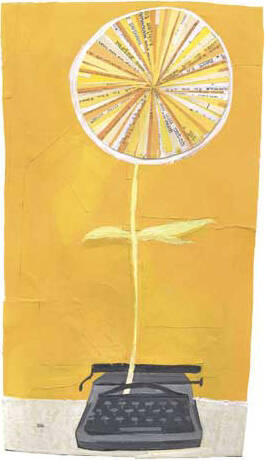I have just finished reading about 1,000 poems submitted for America’s annual Foley poetry contest. Garrison Keillor, of “Prairie Home Companion,” says he read 2,000 poems on the topic of spring to pick 15 for his radio show on April Fool’s weekend. Wearying as that is, we both seem to have enjoyed and been touched by the contact with so many lives and inner worlds and imaginations, to say nothing of personal losses and gains.
A poem can be quite idiosyncratic and surprising, yet I found the following categories recurrent: (1) admiration of natural beauty, (2) a memorial of someone dear, (3) a love lost or found, (4) a prayer, (5) an analysis of life, sensible or pained and (6) a scathing appraisal of society.
Poems came in from all over the world—England, Ireland, Africa, India, Australia and a few from Rome. A high school in Worcester, Mass., had three entrants, each of whom concluded with, “I hope you like this poem.” Yes, I did. The youngest writer was 8, the oldest 89. A 10-year-old named Sullivan Brophy of Rancho Palos Verdes, Calif., sent in 10 haikus (admittedly 10 different poems!), such as the following:
The rare silversword
Blooms once in its long lifetime.
It is beautiful.
An African-American woman, Fabu Carter Mogaka, submitted “African American Life in Haiku: Worship,” containing this sample:
Flamboyant colors
Vivid against bland pews
Churchwomen’s hats.
Then there was the teacher (Paul Doherty) who for his fifth-grade class wrote in rhymed couplets about his cat, Pudens. (What did he tell them about the cat’s name? I wondered.) As I read through the 1,000 poems, I sometimes jotted down a good phrase, like this one from James Streeto, M.D.: “to be still and pensive/ in the twilight of the rose-tinted snow.” I especially liked these lines: “Could this be what a Savior’s for, to stay/ the unintended chaos of events,/ to change what’s come to be to what was meant?” (Yvonne Goulet). And how about this clipped message: “Open the door,/ Step outside./ God waits” (Sister Marilyn Lacey)?
Every judge has criteria, spoken or unspoken, so what are mine? When I pick up a poem, most of all I hope for an imaginative spark, some ingenious take on things. But as for more specific criteria, I guess I look for clarity, economy and musical pattern. If the poem is cloudy, or wordy, or formless, I lose interest right away. The most elusive of these considerations, and the one most pertinent to poetry, is the matter of form. Are the lines strong and without words dangling at the end? Is there some kind of musical pace? (“Where’s the beef?” is the question for eateries. “Where’s the music?” is the question of poetry readers.) Does the poem really read like a block of prose? (To me, many do.) Well then, let it be content with that distinction. (This is an antique attitude, but I hold out for it.)
Ruthann Williams, O.P., has perhaps a livelier perspective on poems and poetic form than I do:
never be deceived
what look like lines
are really chunks and slabs
and random shapes
constructed
not at all haphazardly
In Alice and Wonderland, in all the confusion after the Caucus-race, the contestants demand, “But who has won?” The dodo, who invented the race, declares, “Everybody has won, and all must have prizes.” At the risk of comparison with such a bird, I wish its words to be mine.








